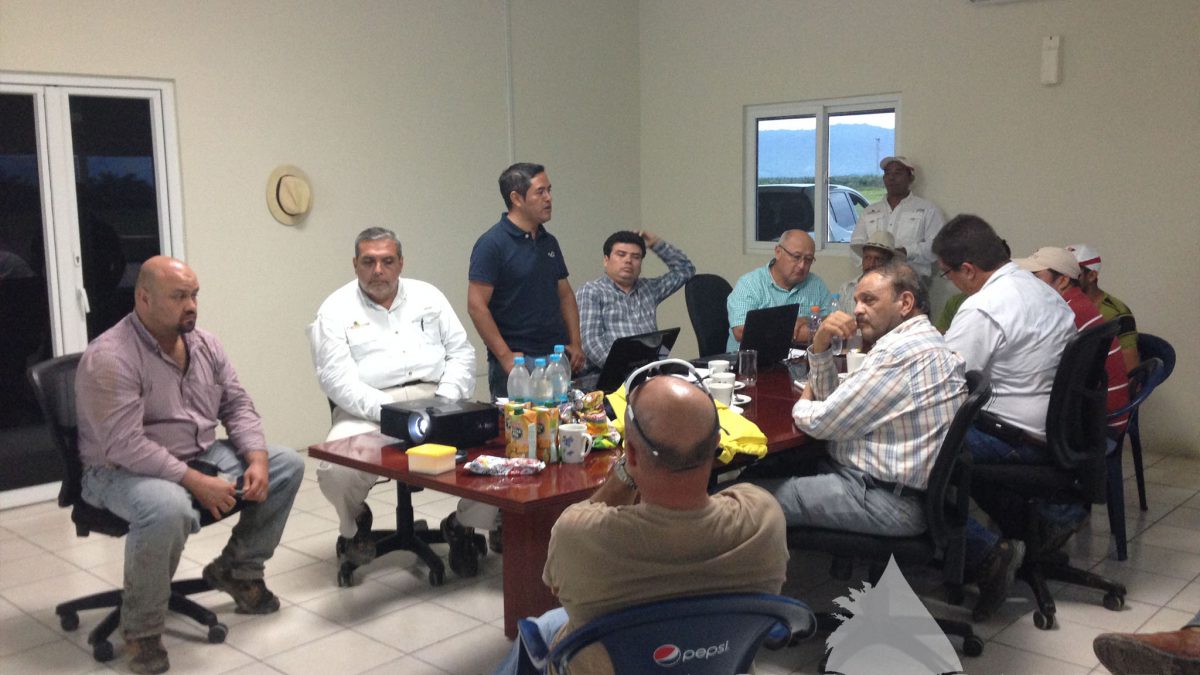Extractora La Francia´s producer partners get Rainforest Alliance Certification

Agrocaribe installed a hydrating beverage machine
October 15, 2014
Extractora del atlantico’s employees get training
October 29, 2014The group Izabal Palm Producers Association (PAPI for its initials in Spanish) was successfully certified after a year of work and implementation of the Sustainable Agriculture Network (SAN) standards. The group, consisting of seven palm oil producers in partnership with Extractora La Francia, certified 1,459 palm hectares.
Miguel Osorio, from the Inter-American Foundation for Tropical Research (FIIT), a non-government, non-profit, Guatemalan organization that promotes scientific and economic research, as well as the sustainable use of natural resources for the conservation of ecosystems and member of RAS, said he was pleased with the outcome of the audit.
“The strength of the group is in each of its members. During the past year they have been implementing regulations and you can see the strength and total involvement of the owners. Working conditions are met, ongoing improvement, environmental education and training can clearly be seen”
Benefits of obtaining certification:
To certify the farms with the Rainforest Alliance Certified seal, 100 criteria developed by RAS are used, which include ongoing improvement, social, environmental and economic criteria to ensure and adopt the concept of sustainable agriculture. Benito Mungia, technical adviser for the producing partners of Extractora La Francia testifies to have seen production improvement. "With the commitment from Agrofrancia to give them technical support, there has been a significant improvement in their yields. Now they are providing close to 10% of the fruit processed in Extractora La Francia. Everyone has improved their yields and farming practices. "
“The workers use their personal protection equipment for applications and safety equipment for harvesting and gathering fruit. There are emergency kits on the field and today's workers feel they are in a better working environment. There are fewer accidents and naturally this improves their performance. Only agro inputs approved by RAS are used, specific areas have been implemented for triple washing and there are septic tanks in housing areas" he commented ”.
“As you go along and know more about it, you realize what it means to meet established standards." He also mentioned that "having more and better controls benefits everyone" and that people become more responsible. He added that it pays to have a way of showing compliance with the law, "and it should not be seen as an imposition but as a way to show what must be met, which are the existing laws”.
The main benefits of being certified with RAS regulations under the Rainforest Alliance Certified seal are: be able to increase farm efficiency, reduce costly inputs and improve management. Besides workers benefit from having a cleaner, safer and decent workplace where their rights are respected.
“The implementation of the Standard of the Sustainable Agriculture Network of the producing partners, has been an example of the commitment we have as a corporation to be a sustainable palm producer across the whole logistics chain. It has been a challenge for the Certifications and Environment Management to support the producing partners throughout the implementation process, while it was satisfactory to see how each one of the producers took the criteria as part of their daily work till they made them part of their way of life. The commitment that the producers made in favor of the RAS standards has been of the utmost importance to obtain the Certification with a score of 97 points”.
Objectives
The RAS developed the concept of sustainable agriculture as a way to achieve integration in agricultural practices, dealing with collaborators, rural communities, consumers and environments, in order to increase the social and economic benefits of producers and at the same time reduce the environmental impacts.

